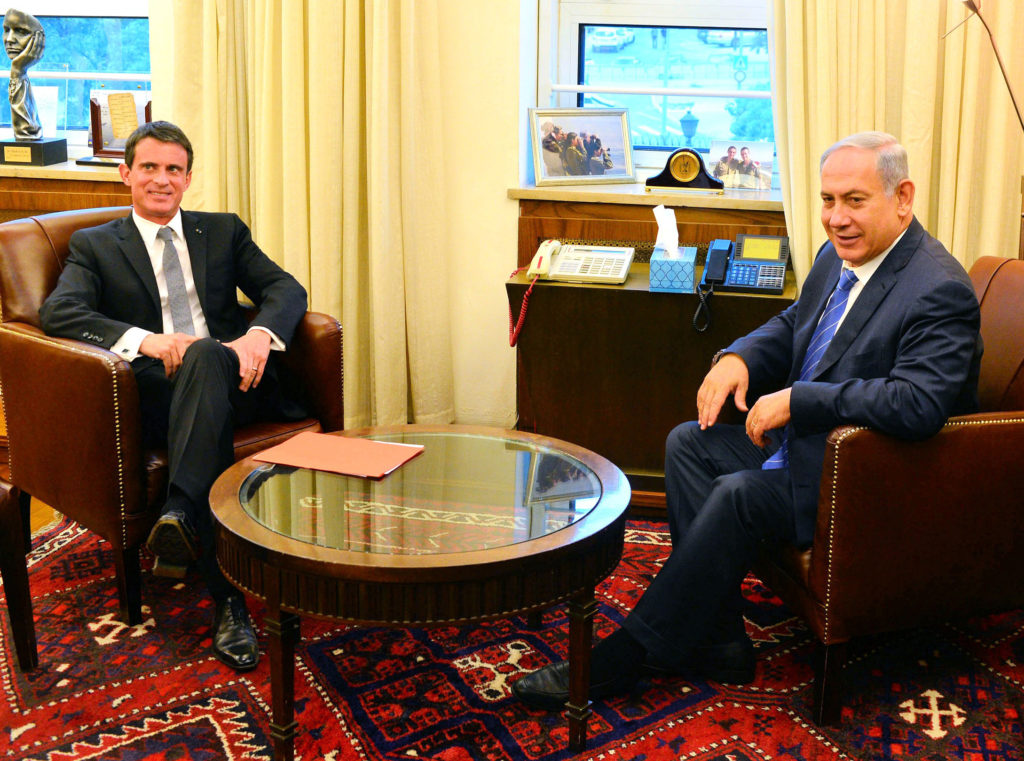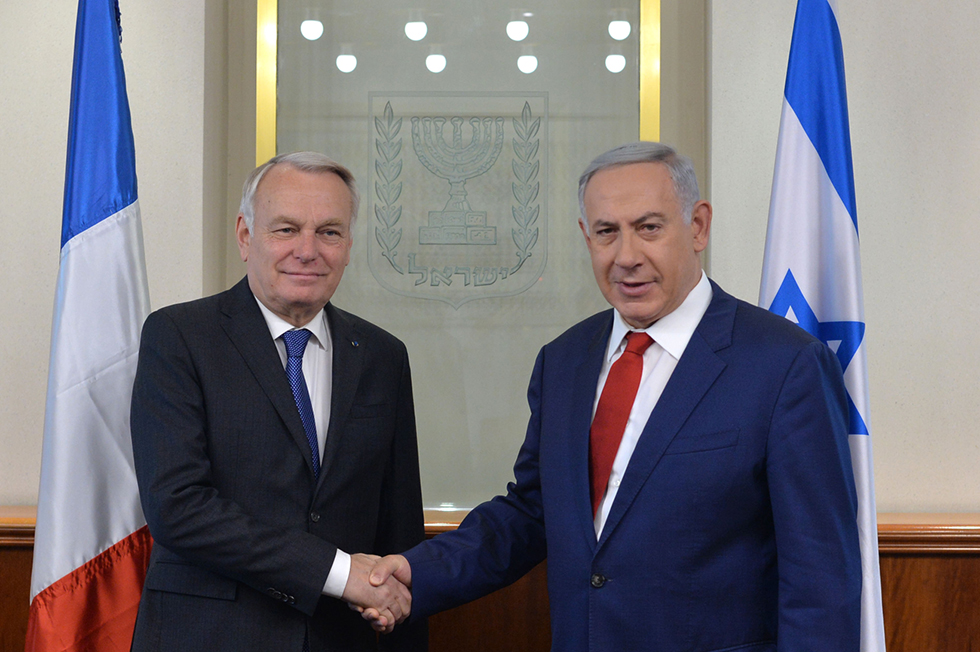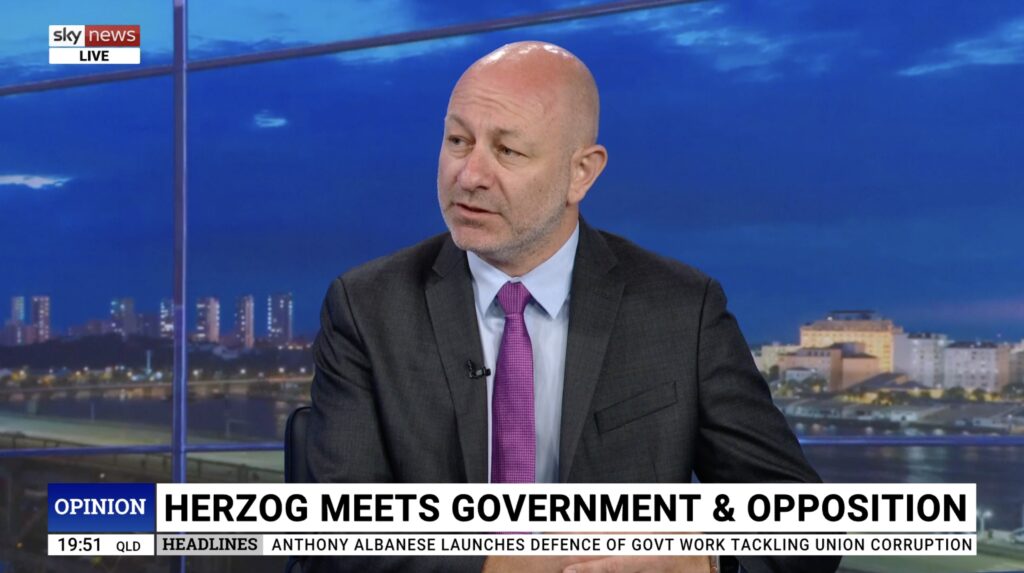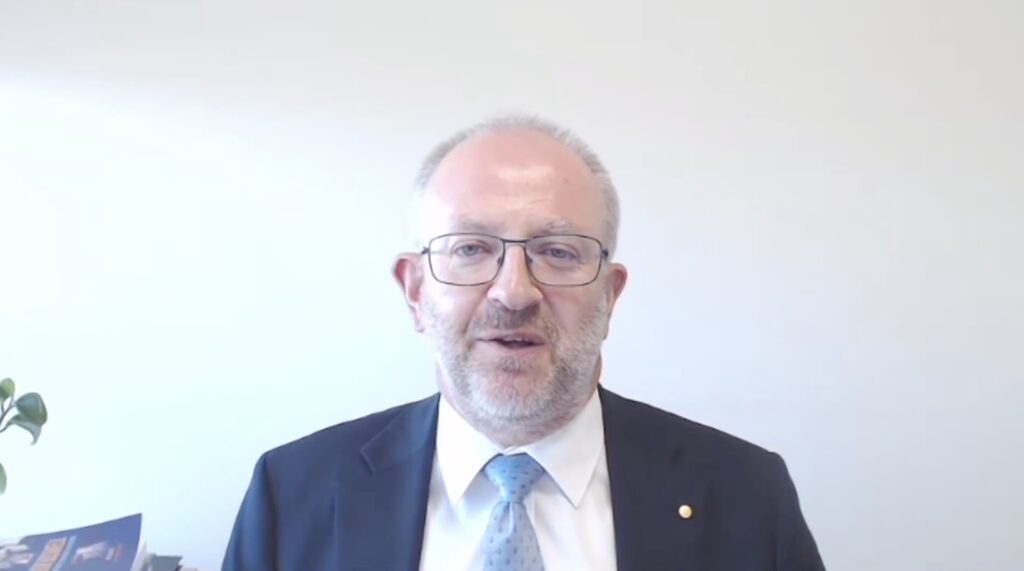Article 3
For Middle East Peace, Look to Israel’s Arab Partners
By John Hannah
Foreign Policy, May 16, 2016 – 11:59 am

Speculation is rife that President Barack Obama will make one final stab at putting his mark on the Middle East peace process before he leaves office. One theory has the administration supporting a United Nations Security Council resolution that would codify terms for a deal between Israel and the Palestinians. Another has Obama going it alone, delivering a high-profile speech setting out “Obama parameters” for a two-state solution.
But if Obama has anything more in mind than adding another shiny exhibit to his presidential library, he’d be wise to forego either option. Neither stands much chance of actually advancing the cause of regional peace and stability. On the contrary, they’re more likely to set it back. Instead, the president would be better advised to apply the powers of his office to a slightly more promising — albeit less headline-grabbing — effort, where his engagement might really have strategic impact. I’m talking about facilitating the burgeoning relations between Israel and America’s most important Arab friends.
It’s virtually impossible to imagine Israel and the Palestinians conducting fruitful negotiations under the current circumstances. Mistrust is at an all-time high. Gaps on the core issues are wide. Talks have been in deep freeze for over two years. For months on end, young Palestinians have targeted innocent Israelis in a wave of random stabbings. The Palestinian leadership, in particular, seems weaker, more divided, and more paralyzed than ever, utterly incapable of taking on the gut-wrenching compromises that even the most generous peace offer would require. Secretary of State John Kerry devoted his first year at Foggy Bottom to a dubious, but nevertheless Herculean effort to force-feed a deal to the parties, and failed miserably. There’s no reason whatsoever to believe that the chances for success would be any better today.
Even Obama has acknowledged that renewed negotiations, much less a peace agreement, aren’t in the cards before he leaves office. So why even toy with the idea of a big initiative that would have him — or worse yet, the U.N. — dictating terms of a settlement from on high? Advocates suggest that Obama’s purpose would be to leave his successor with the issue on a more promising or hopeful trajectory than the current unsatisfying deadlock. But given Israel’s historical objection to any outside effort to impose a solution, the more likely result is that the next president would inherit a relationship even worse than what we have today with our best Middle East ally. As for the Palestinians, if outside intervention to impose a deal rewards their refusal to negotiate, what incentive would they have to return to the table, rather than merely sit back and wait for even greater international pressure to be brought on Israel? What exactly would be more positive or hopeful about any of that from a U.S. perspective?
Truth be told, the more likely impetus for any last-minute grand gesture by the president on the peace process seems more personal than strategic in nature. Within days of taking office, Obama signaled that a solution to the Israel-Palestine conflict was among his highest priorities, the deus ex machina that would right everything wrong about America’s relations with the Muslim world. Yet for more than seven years, his lofty ambitions on this front have been frustrated at every turn — as often as not, in Obama’s eyes, by the failure of Israeli Prime Minister Benjamin Netanyahu to appreciate the deep wisdom of the White House’s transformative agenda for the Middle East.
The president’s credibility on Israel-Palestine is in tatters. A high-profile declaration as he prepares to leave office would offer Obama at least the possibility that his legacy on the issue could be something other than a dreary litany of failure and futility. Better his sentence in the history books read “the Obama Parameters for Peace,” than some version of “all hat, no cattle.” And if in the process he can stick it to Netanyahu and defy the Washington foreign policy establishment (aka, the Blob) one last time, well, so much the better. Mic drop moment. Obama out.
If the president is ultimately deterred from his peace process temptation, it will likely have more to do with politics than any rigorous assessment of American national interests and priorities in the Middle East. Specifically, he’s no doubt loathe to do anything that might complicate Hillary Clinton’s bid to succeed him as president in what history would no doubt regard as Obama’s third term. Picking a fight with Israel in the run-up to November’s elections would almost certainly fall into that category. After the elections, a different calculation might prevail. But the convention against a lame-duck president launching major policy departures after his successor has been chosen, perhaps joined with a new president-elect’s objection to being saddled with the fallout from Obama’s Palestinian vanity project, might still stay the administration’s hand.
Or so one can hope. If it does, Obama might more productively direct his energies during his waning months in office to the slightly more auspicious diplomatic ground of Israel’s thickening links with a handful of key Arab states. While the fact of such contacts is nothing new, there’s now a palpable sense that both the frequency and quality of the interactions, mostly conducted in private, have intensified considerably over the past few years.
The reason for this, of course, is the growing convergence in regional threat perceptions. Both Israel and U.S.-aligned Sunni Arab states now share the view that the rising power of Iran and radical Islamism pose a far greater danger to their mutual security and well-being than the chronic inability to resolve the Palestinian question, now well into its seventh decade. This sense of common interests and priorities has resulted in expanding political, economic, and intelligence ties, including a relatively robust trade in Israeli security technology.
Most of the interactions remain covert, but there’s also been a slow but steady series of important public milestones: increasingly routine meetings between former high-level security officials from Saudi Arabia and Israel (see here, here, here, and here); the establishment by Israel of an official office at a United Arab Emirates-based international agency; and Saudi Arabia’s acknowledgement that it will honor key security provisions of the Egypt-Israel peace treaty as part of a recent deal, by which Cairo returned two islands in the Gulf of Aqaba to Saudi control. Meanwhile, military and intelligence cooperation with Egypt and Jordan, the two Arab states with which Israel already has diplomatic relations, are allegedly better than ever.
The degree of progress shouldn’t be exaggerated. Nor should it be dismissed. Serious conversations are occurring. Business is getting done. That represents major positive change. The question now is whether this dynamism can somehow be converted into a historic inflection point for the region. Can backdoor channels for exchanging views become the basis for discreet but concrete cooperation to better address some of the most pressing threats and challenges facing both Israel and the Sunni Arab states — Iran first and foremost? Can the remarkable alignment of threat perceptions be operationalized into a de facto coalition of the willing, which would allow the parties to combine their considerable resources and capabilities behind a common strategy to more effectively counter, deter, and defeat their shared enemies, and enhance regional stability?
For example: Israel is routinely attacking Hezbollah targets in Syria. For their part, the Gulf states have recently designated Hezbollah as a terrorist group. They’re also supporting rebel groups in Syria that have been fighting Hezbollah’s forces on the ground. The obvious question is whether the countries in question might be able to synchronize their efforts, to create greater synergies and achieve even larger strategic effects that would weaken and undermine Iran’s most important regional proxy.
Missile defense is another obvious agenda item for security cooperation. The Saudi-led coalition’s war in Yemen against Iranian-backed Houthi rebels has exposed the fact that the coalition suffers from significant vulnerabilities to short-range missile and rocket attacks. That, of course, is precisely the threat that Israel’s Iron Dome system has addressed so effectively. The logic of a major Gulf investment in Israeli missile defense technology, including work on next-generation systems like directed energy weapons, is not hard to understand. A similar logic applies in other areas, like cyber warfare, border security, and critical infrastructure protection.
The United States should have a profound interest in testing how far the budding strategic rapprochement between Israel and the Sunni Arab states can go. Given its role as the most important, powerful, and trusted outside partner on both sides, there’s no doubt much the United States could serve as a catalyst, organizer, and patron of this emerging coalition — mediating, prodding, strategizing, and providing reassurances, guarantees, and resources. Although the current contacts between Israel and some of its neighbors is heartening, that contact won’t reach its full potential absent active U.S. assistance and protection. The historical antagonisms, suspicions, and risks — especially for a religiously conservative monarchy like Saudi Arabia, the self-styled epicenter of worldwide Islam — may simply be too great for the parties to overcome on their own.
Unfortunately, there’s little sign to date that the Obama administration has much interest in playing such a role. Israeli officials complain that the United States remains far too focused on the Palestinian issue, while missing entirely the historic opportunity to advance relations between Israel and the Arab states.
One also has to wonder how much of the administration’s reluctance can be explained by its Iran obsession. As a recent New York Times Magazine profile of Ben Rhodes, allegedly Obama’s closest national security aide, laid bare, achieving some kind of rapprochement, or modus vivendi, with the Islamic Republic has been absolutely central to the president’s overriding strategic purpose “of large-scale disentanglement from the Middle East.” The administration could well view its potential role in a security partnership between Israel and the Sunni Arabs, who would prioritizing the confrontation of Iranian aggression, as too great a risk to the White House’s master plan for retrenchment.
It also has to be said that Obama, in his recent Atlantic interview with Jeffrey Goldberg, along with Rhodes, have made clear the president’s underlying contempt for both Israel and America’s Arab partners, especially Saudi Arabia. He seems to view them all as too difficult, ungrateful, and unreliable. It’s not hard to imagine him taking a pass on an initiative that might require him to invest considerable time and energy in fostering improved relations between parties that he holds in such disdain. As the Rhodes profile revealed, Obama’s underlying mission is to disentangle America from these burdensome relationships, not dig it in deeper.
Whatever the causes of Obama’s failure to seize on the important shifts in Israel’s relations with the Arab states, it certainly represents a lost opportunity that the next administration should take up. Ironically, in addition to the significant security benefits that could flow from such cooperation, there’s also at least the possibility that it might eventually pay off in the Palestinian arena as well. Under the strategic umbrella of strengthening ties between Israel and the most powerful Arab states, both Palestinians and Israelis might gain greater incentives and confidence in their abilities to take the necessary risks for peace. Just imagine for a moment the reverberations of an Arab delegation, led by the foreign ministers of Egypt, Jordan, Morocco, Saudi Arabia, and the UAE, arriving in Israel on a mission to speak directly to the Israeli people about their long-dormant Arab peace initiative. Unlikely? Perhaps. Impossible? No longer — especially with robust American backing. After decades of stalemate, failure, and lost hope, that kind of strategic shakeup in the region’s landscape might be just what is needed to break the unbreakable Palestinian logjam. That’s the real peace process play that America should be pursuing.
John Hannah is a senior fellow at the Foundation for Defense of Democracies, focusing on U.S. strategy.
|









